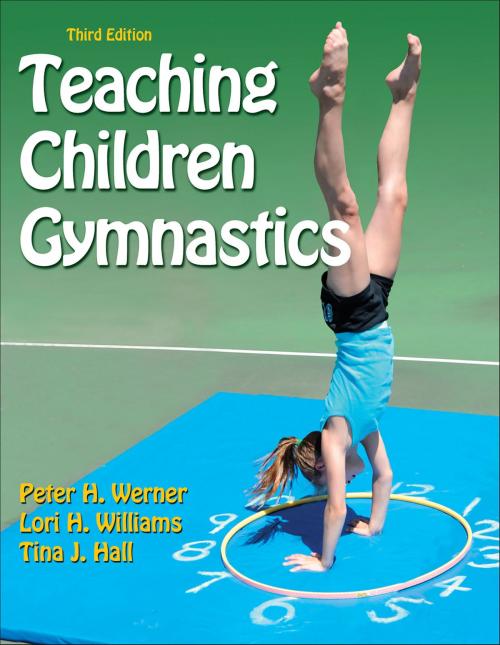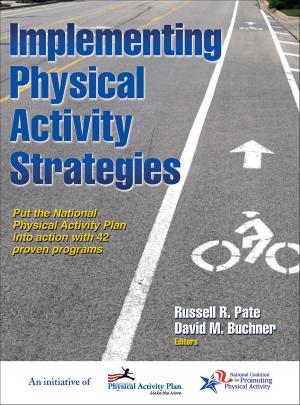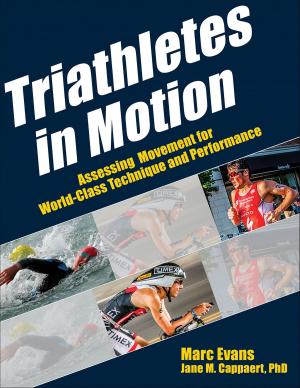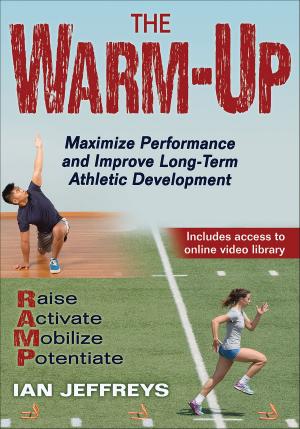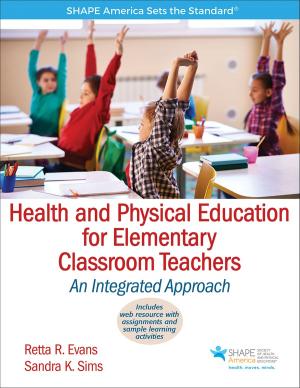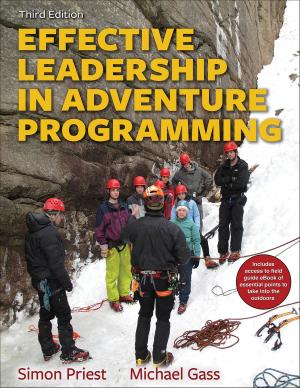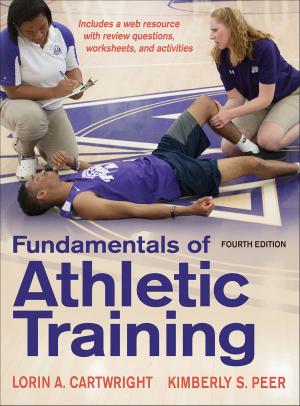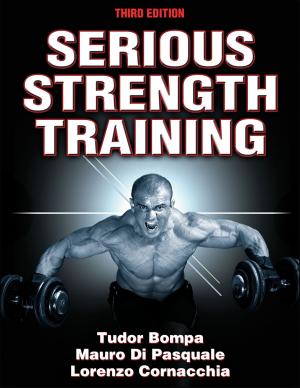Teaching Children Gymnastics
Nonfiction, Sports, Gymnastics, Reference & Language, Education & Teaching, Elementary| Author: | Peter H. Werner, Lori H. Williams, Tina J. Hall | ISBN: | 9781492583233 |
| Publisher: | Human Kinetics, Inc. | Publication: | November 2, 2011 |
| Imprint: | Human Kinetics, Inc. | Language: | English |
| Author: | Peter H. Werner, Lori H. Williams, Tina J. Hall |
| ISBN: | 9781492583233 |
| Publisher: | Human Kinetics, Inc. |
| Publication: | November 2, 2011 |
| Imprint: | Human Kinetics, Inc. |
| Language: | English |
This third edition of Teaching Children Gymnastics will help you tailor a gymnastics program to your teaching situation while combining the best facets of developmental skills, health-related fitness, and conceptual learning based on process characteristics of body, space, effort, and relationships. Internationally renowned author and educator Peter Werner and coauthors Lori Williams and Tina Hall guide you through the process of teaching gymnastics skills and then linking those skills into sequences.
Having conducted workshops at all levels, the three authors combine decades’ worth of gymnastics knowledge and teaching experience. In this book, they offer updated and new material, including
• a chapter on designing gymnastics sequences;
• sections on behavior management, inclusion, and advocacy;
• information on scope and sequence for grades K to 5;
• information based on revised national standards, assessment, and designing of gymnastics sequences; and
• additional learning experiences, plus ideas for creating more learning experiences.
You will find real-life scenarios that will help you apply the material, and you will learn how to create a positive learning environment for your students. Chapter objectives, summaries, and reflection questions enhance the learning experience.
Part I of Teaching Children Gymnastics provides an overview of developmentally appropriate gymnastics, exploring why it should be part of a high-quality elementary physical education program and how the instructional approach used in the book differs from the traditional approach used in physical education. The material in part I will help you plan your program, incorporate it into your curriculum, and assess your students.
Part II provides great learning experiences for the skill themes of traveling, statics, and rotation. Each skill theme is broken into categories that help children acquire the skills they need to learn. It’s in this portion that they develop sequences that integrate all the skills they have learned. The authors also supply an appendix with forms and handouts, cutting down your preparation time.
Teaching Children Gymnastics is a great tool for novice and experienced teachers alike. More than that, it’s the perfect resource for opening up the fun and exciting world of gymnastics to youngsters who are always looking for an excuse to perform just the types of skills that they will learn—and design sequences for—through this book.
This third edition of Teaching Children Gymnastics will help you tailor a gymnastics program to your teaching situation while combining the best facets of developmental skills, health-related fitness, and conceptual learning based on process characteristics of body, space, effort, and relationships. Internationally renowned author and educator Peter Werner and coauthors Lori Williams and Tina Hall guide you through the process of teaching gymnastics skills and then linking those skills into sequences.
Having conducted workshops at all levels, the three authors combine decades’ worth of gymnastics knowledge and teaching experience. In this book, they offer updated and new material, including
• a chapter on designing gymnastics sequences;
• sections on behavior management, inclusion, and advocacy;
• information on scope and sequence for grades K to 5;
• information based on revised national standards, assessment, and designing of gymnastics sequences; and
• additional learning experiences, plus ideas for creating more learning experiences.
You will find real-life scenarios that will help you apply the material, and you will learn how to create a positive learning environment for your students. Chapter objectives, summaries, and reflection questions enhance the learning experience.
Part I of Teaching Children Gymnastics provides an overview of developmentally appropriate gymnastics, exploring why it should be part of a high-quality elementary physical education program and how the instructional approach used in the book differs from the traditional approach used in physical education. The material in part I will help you plan your program, incorporate it into your curriculum, and assess your students.
Part II provides great learning experiences for the skill themes of traveling, statics, and rotation. Each skill theme is broken into categories that help children acquire the skills they need to learn. It’s in this portion that they develop sequences that integrate all the skills they have learned. The authors also supply an appendix with forms and handouts, cutting down your preparation time.
Teaching Children Gymnastics is a great tool for novice and experienced teachers alike. More than that, it’s the perfect resource for opening up the fun and exciting world of gymnastics to youngsters who are always looking for an excuse to perform just the types of skills that they will learn—and design sequences for—through this book.
